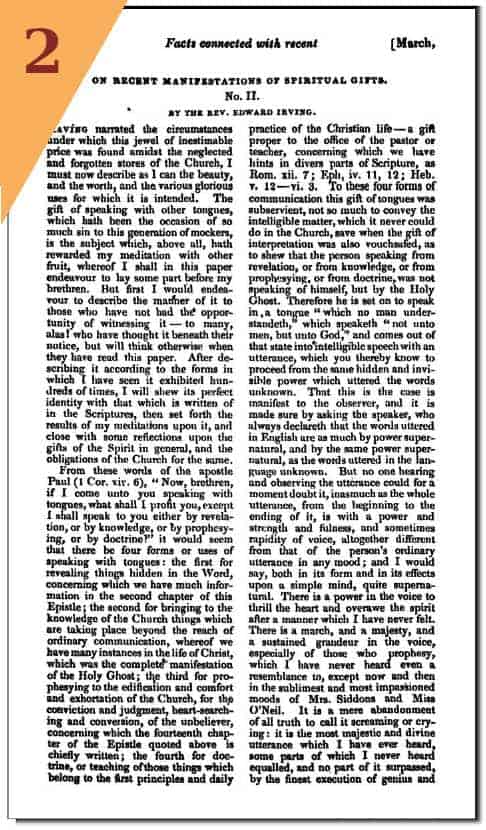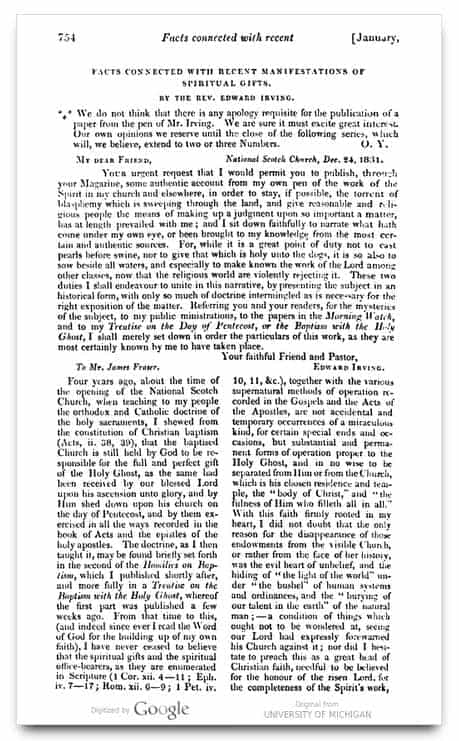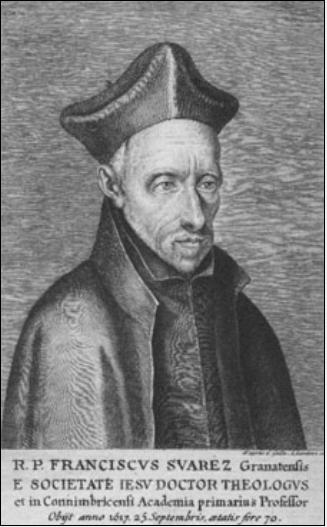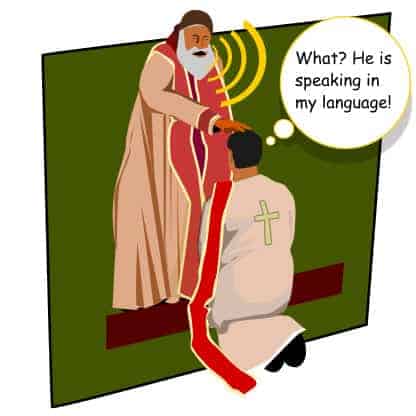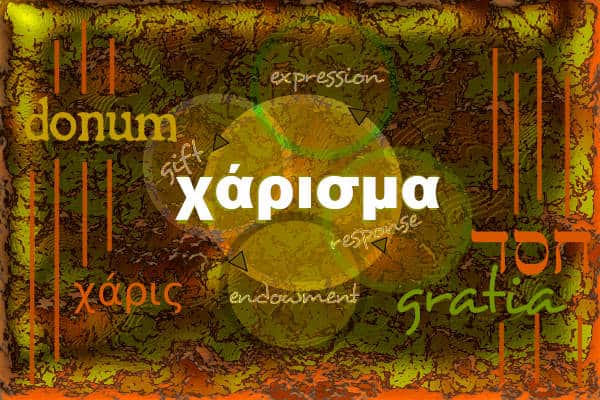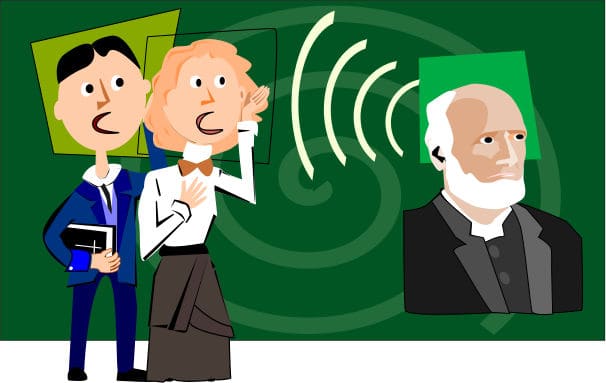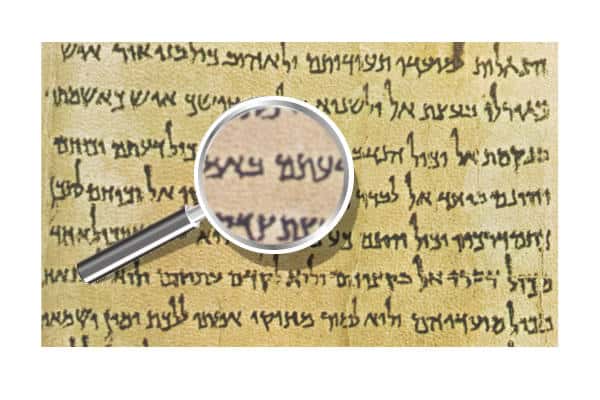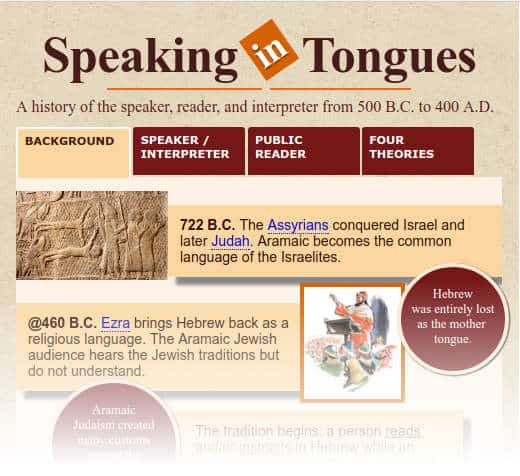A digitization of Edward Irving’s second defense in Fraser’s Magazine on his promotion of unknown tongues.
Reverend Edward Irving and his central London congregation (1830s) were the center of world-wide religious attention on the topic and practice of speaking in tongues. The result was that he received heavy criticism from a variety of sources.
Irving sought to counter claims against him and his church by publishing three articles in a popular English publication called Fraser’s Magazine. All three works are digitally captured for the Gift of Tongues Project. The following is his second entry.
——–
ON RECENT MANIFESTATIONS OF SPIRITUAL GIFTS.
No. II
BY THE REV. EDWARD IRVING.
